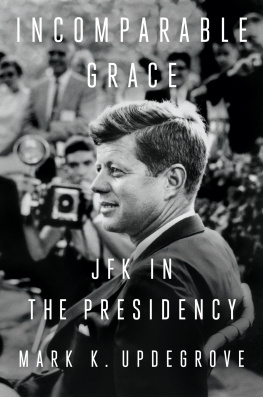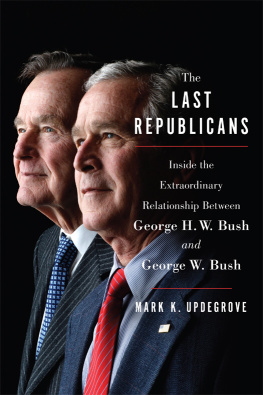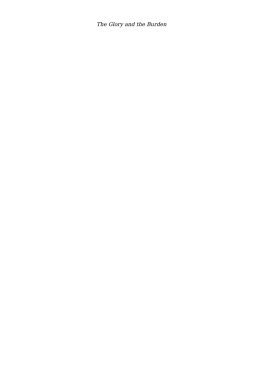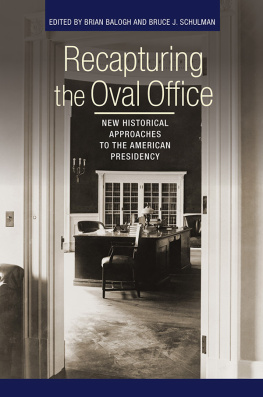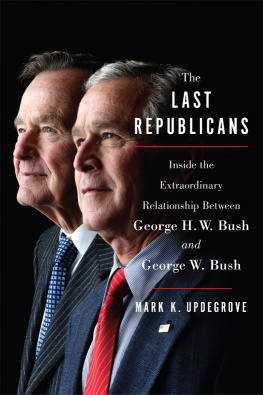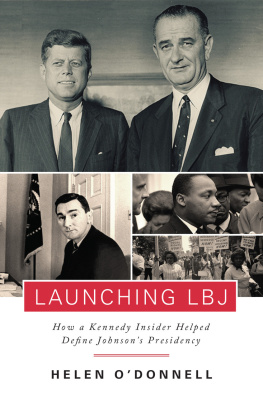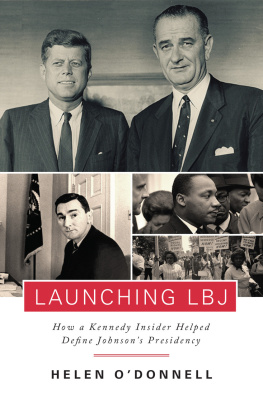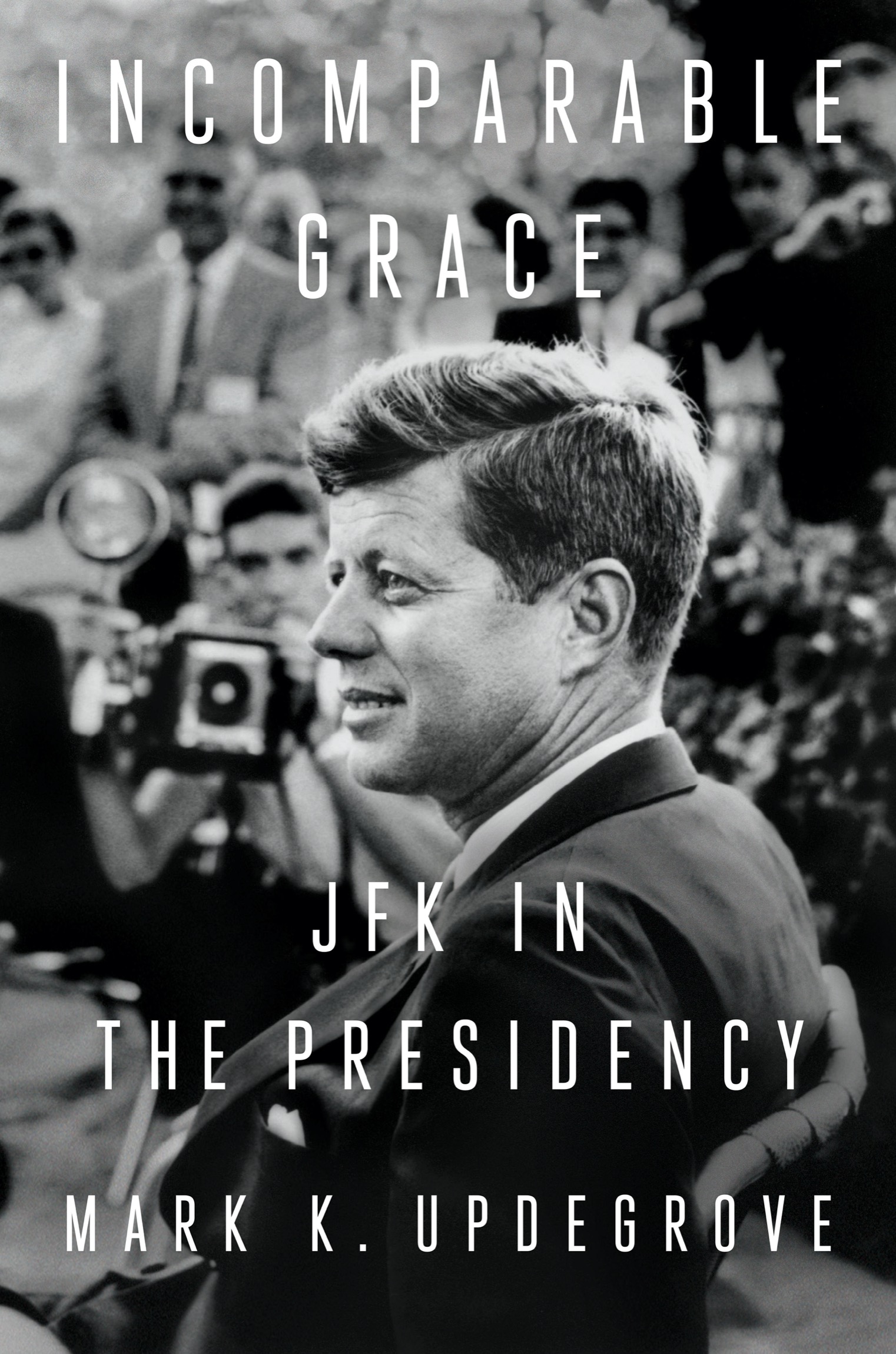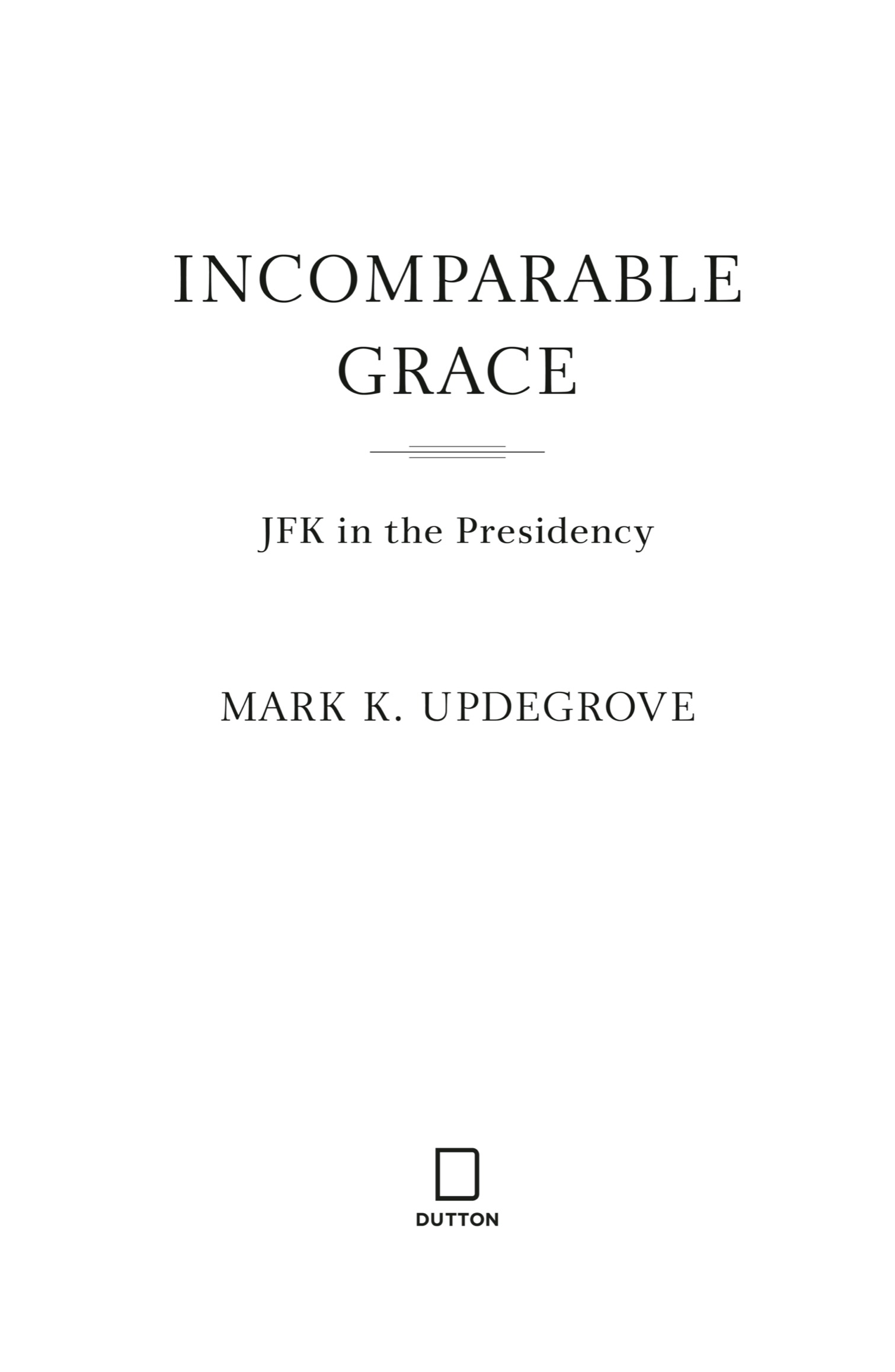ALSO BY MARK K. UPDEGROVE
The Last Republicans: Inside the Extraordinary Relationship Between George H. W. Bush and George W. Bush
Indomitable Will: LBJ in the Presidency
Baptism by Fire: Eight Presidents Who Took Office in Times of Crisis
Second Acts: Presidential Lives and Legacies After the White House

An imprint of Penguin Random House LLC
penguinrandomhouse.com
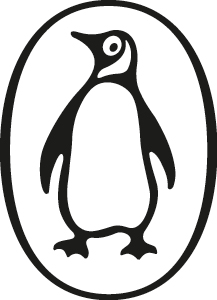
Copyright 2022 by Mark K. Updegrove
Penguin supports copyright. Copyright fuels creativity, encourages diverse voices, promotes free speech, and creates a vibrant culture. Thank you for buying an authorized edition of this book and for complying with copyright laws by not reproducing, scanning, or distributing any part of it in any form without permission. You are supporting writers and allowing Penguin to continue to publish books for every reader.
DUTTON and the D colophon are registered trademarks of Penguin Random House LLC.
library of congress cataloging-in-publication data
Names: Updegrove, Mark K., author.
Title: Incomparable grace : JFK in the presidency / by Mark K. Updegrove.
Other titles: JFK in the presidency
Description: [New York, N.Y.] : Dutton, [2022] | Includes bibliographical references and index.
Identifiers: LCCN 2021015334 (print) | LCCN 2021015335 (ebook) | ISBN 9781524745745 (hardcover) | ISBN 9781524745769 (ebook)
Subjects: LCSH: Kennedy, John F. (John Fitzgerald), 19171963. | United StatesHistory19531961. | PresidentsUnited StatesBiography.
Classification: LCC E842 .U63 2021 (print) | LCC E842 (ebook) | DDC 973.922092 [B]dc23
LC record available at https://lccn.loc.gov/2021015334
LC ebook record available at https://lccn.loc.gov/2021015335
While the author has made every effort to provide accurate telephone numbers, internet addresses, and other contact information at the time of publication, neither the publisher nor the author assumes any responsibility for errors or for changes that occur after publication. Further, the publisher does not have any control over and does not assume any responsibility for author or third-party websites or their content.
Cover photo: Jacques Lowe, Jacques Lowe Photographic Archive, Briscoe Center for American History, University of Texas at Austin
pid_prh_6.0_139754572_c0_r0
To my wife, Amy Banner Updegrove, and my sister, Susan Updegrove Crafford, both of whom share JFKs May 29 birthday and have given my life such joy.
CONTENTS
PROLOGUE
Uneasy lies the head that wears a crown.
William Shakespeare, Henry IV, Part 2
On an early June evening in 1961, President John Fitzgerald Kennedy, less than a week past his forty-fourth birthday, sat grimly in a dark room in the U.S. Embassy in Vienna, his exhausted mind churning. Moments earlier he had come from a dinner at the Soviet Embassy, the last session of a two-day summit between the United States and the Soviet Union. Over those two long days, as news media across the world awaited even the smallest of updates, the ever-composed JFK had finally come face-to-face with the barrel-chested, hot-tempered Soviet premier Nikita Khrushchev, and for perhaps the first time in his life, he worried he was in over his head.
The stakes couldnt have been higher. Since the end of World War II, the two superpowers had been enmeshed in a cold war that defined geopolitics as the worlds nations aligned with either the American or Soviet sphere. The threat of nuclear war had become a fact of everyday life as atomic bomb preparedness drills were practiced routinely; the majority of Americans believed a nuclear showdown was imminent. Tensions seethed over the fate of global crucibles: Berlin, the divided German city composed of the free west and communist-controlled east; Laos, the Southeast Asian nation battling a potential takeover by communist insurgents; and Cuba, whose U.S.-backed government had been toppled by rebels two years earlier under the leadership of Fidel Castro.
Expectations for Kennedys performance had been just as high. As the Washington Post wrote on the eve of the summit, The Soviet hope is that Mr. Kennedy will buckle under to Khrushchev in some form or other. Yet it may be that Mr. Kennedy... has the courage to act to protect American interests... Nikita Khrushchev notwithstanding. That was the American hope.
The curtains in the U.S. Embassy had been drawn so that the presence of James Scotty Reston, the Washington bureau chief for the New York Times, who had been secretly granted an exclusive off-the-record interview, would go unnoticed by the international press contingent of over 1,500 who waited anxiously outside for a joint statement. When Reston was ushered into the room, the normally upbeat Kennedy appeared drained and unnerved. In the darkness, the president pressed his body into the couch; the brim of a fedora was pulled down over his eyes.
How was it? Reston asked.
Worst thing in my life, Kennedy answered. Khrushchev, he confessed, had savaged him.
Reston was taken off guard by Kennedys candor. Not the usual bullshit, he scribbled in his notebook, a briar pipe clenched in his mouth. There is a look a man has when he has to tell the truth.
If there was truth to tell, little of it came out the following day in Restons front-page story. President Kennedy, if not pleased, has had his first major experience in cold war diplomacy and has come out of it very well, the last lines read. He did not expect much and he did not get much, but he went away from here more experienced and he now rates more highly in the estimation of the men who watched these exchanges than he has at any time since he entered the White House.
In fact, as he had admitted to Reston, Kennedy had come out poorly against his shrewd adversary. Kennedy loved what he called the chess game of power, but he had been outplayed and he knew it. A political cartoon published after the summit conveyed his humiliation: Kennedy and Khrushchev at opposite ends of a chessboard in front of a sign that reads, The Boy Wonder Versus the Grandmaster, with Kennedy dressed in a schoolboys uniform sitting atop two large tomes to reach the table, turning to allied Western leaders behind him to report, Then I moved a pawn and we adjourned...
Just over four months earlier, Kennedys presidency had begun as promisingly as any since Franklin Roosevelt had taken office in the depths of the Great Depression. Though he had defeated his Republican challenger, Vice President Richard Nixon, by just two-tenths of a percentage point in the presidential election the previous November, Kennedy had quickly captured the imagination and esteem of the American people as he became the youngest president-elect in history at age forty-three. Handsome and charismatic, he radiated glamour unrivaled by any of the men who had preceded him as chief executive, all suited to an evolving television age in which image had become a greater political asset. Indeed, JFK had assumed the presidency with incomparable grace. As Nixon later put it, Kennedy was one that attracted the people who wanted a young, courageous man in the presidencyand yet one who was suave, smooth, debonair, and graceful. Basically, that was the mark of royalty. Accessorizing his regal aura was his wife, Jackie, who cast elegance and celebrity flair of her own; their two young children, Caroline and John Jr., three years old and two months old upon their fathers inauguration; and the vivacious extended Kennedy clan, one of Americas wealthiest families. Along with Kennedy, all of them would captivate the media throughout his tenure in office.

